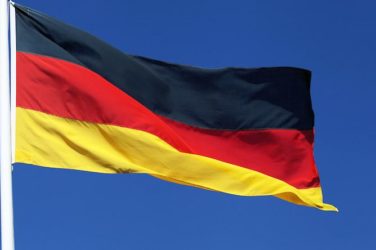
Heads of agencies meet in Paris to discuss harmonization.
International regulators are cranking up efforts to achieve harmonization on critical areas of OTC derivatives reform, such as central clearing, trade reporting to repositories, and exchange and electronic platform trading.
Leaders of authorities responsible for regulation of the OTC derivatives markets in Canada, the European Union, Hong Kong, Japan, Singapore, and the United States met last week in Paris, where they addressed the cross-border issues related to the implementation of new legislation and rules to govern the OTC derivatives markets in their respective jurisdictions.
At the conclusion of the meeting, the authorities agreed to continue bilateral regulatory dialogues and to meet as a group again in early 2012.
Since mid-2011, the authorities have engaged in a series of bilateral technical dialogues on OTC derivatives regulation. The meeting, held at ESMA headquarters in Paris, is the first time the authorities have met as a group to discuss their implementation efforts.
SEC chairman Mary Schapiro, who was present at the meeting, told Congress earlier this month that achieving international harmonization was a high priority for regulators.
The Dodd-Frank Act specifically requires that the SEC, the CFTC, and the prudential regulators “consult and coordinate with foreign regulatory authorities on the establishment of consistent international standards” with respect to the regulation of OTC derivatives.
Accordingly, the SEC has actively entered into bilateral and multilateral discussions with foreign regulators addressing the regulation of OTC derivatives, Schapiro said.
“Through these discussions and our participation in various international task forces and working groups, we have gathered information about foreign regulatory reform efforts, identified potential gaps, overlaps and conflicts between U.S. and foreign regulatory regimes, and encouraged foreign regulators to develop rules and standards complementary to our own under the Dodd-Frank Act,” said Schaprio.
Such efforts include frequent calls and meetings with the European Union and other major foreign regulatory jurisdictions in Asia and North America.
In addition, the SEC participates in the Financial Stability Board’s Working Group on OTC Derivatives Regulation, of which the SEC serves as one of the co-chairs on behalf of the International Organization of Securities Commissions (“IOSCO”), and serves as one of the four co-chairs of the IOSCO Task Force on OTC Derivatives Regulation.
“As we progress toward the adoption of our Title VII rules, we will continue to consult with our regulatory counterparts abroad in an effort to foster the development of common frameworks, and to help ensure a level playing field for market participants and prevent opportunities for regulatory arbitrage,” said Schapiro.
Because the OTC derivatives market is a global market, the SEC will “continue to evaluate carefully the international implications of Title VII,” said Schaprio. “Rather than deal with these implications piecemeal, we intend to address the relevant international issues holistically in a single rule proposal.”
The publication of such a proposal will give investors, market participants, foreign regulators, and other interested parties an opportunity to consider as an integrated whole the SEC’s proposed approach to the registration and regulation of foreign entities engaged in cross-border transactions involving U.S. parties.
“The comprehensive and detailed dialogues we have had with the European Union and other major jurisdictions described earlier have informed our thinking about how to address the international implications of Title VII,” Schaprio said.
A group of money center banks, all of them major swaps dealers, have outlined recommendations to the SEC and CFTC on international issues related to Title VII of Dodd-Frank, which covers OTC derivatives.
The banks are recommending that the SEC and CFTC take into account the fact that non-U.S. firms have conducted swap activities with U.S. persons, and vice versa, for many years, including through non-U.S. branches and affiliates, that many non-U.S. jurisdictions already regulate swaps dealers, including non-U.S. branches and affiliates of U.S. and non-U.S. firms, and the G-20 jurisdictions are working to supplement their existing regulatory regimes to incorporate derivatives-related clearing and market transparency reforms to achieve regulatory objectives similar to those of Dodd-Frank.






